Overview
We appreciate your interest in the Gastroenterology and Hepatology fellowship training program at Cleveland Clinic in Florida. Our department consists of 19 gastroenterologists, four transplant hepatologists, and twelve fellows. In late 2023 our training program obtained approval for expansion to 12 fellows and we will reach our full complement in the 2026-2027 academic year. The goal of our training program is to provide our fellows with a learning environment that will allow them to develop into competent gastroenterologists. Our center is uniquely poised to develop skills that the trainee can subsequently transfer into either a private practice setting or an academic setting.
The endoscopy suite consists of eight procedure rooms where the majority of inpatient and outpatient endoscopic procedures are performed. In the endoscopy suite, the fellow gradually becomes comfortable and experienced with diagnostic and therapeutic endoscopy and colonoscopy. Each fellow is expected to perform about 900 colonoscopies and 700 upper endoscopies throughout their training. Our motility lab performs daily esophageal manometries, anorectal manometry, breath testing and pH studies. In addition, fellows are introduced to and gain experience in advanced endoscopic procedures such as ERCP, EUS, EMR, ESD, POEM, double balloon enteroscopy, and RFA.
After acquiring expertise in a wide variety of gastrointestinal and liver diseases during the second half of their training fellows may elect to focus on various sub-specialties within gastroenterology and work with a mentor in inflammatory bowel disease, inherited cancer syndromes, motility, hepato-biliary, advanced endoscopic procedures and nutrition.
We invite you to explore the website to learn more about our GI fellowship program.
Program Director
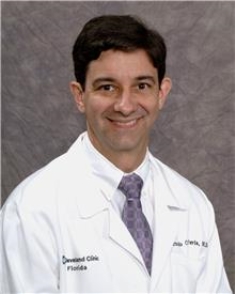
Fernando Castro, MD
The Program
Curriculum & Schedule
The schedule is divided into thirteen 4-week blocks. The schedule is designed to provide first year fellows maximum time and experience in the inpatient setting as well as in endoscopy so they become comfortable with the foundations of GI. First year fellows do an average of five inpatient blocks and 3.5 endoscopy blocks. Second year fellows do three inpatient blocks, and third year fellows are responsible for one inpatient block. During the second and third year, fellows are provided ample opportunity to experience “real world” gastroenterology with more time spent in outpatient/specialty clinics and endoscopy, as well as research/quality improvement rotations. As training advances, the fellow is allowed to tailor their schedule with elective rotations.
Fellows are responsible for a weekly half-day continuity clinic. During their three years of training, fellows will build a panel of patients through new referrals, hospital follows ups, and inherited patients from previous fellows’ clinics. Fellows will be assigned a continuity clinic preceptor for an entire academic year and then change preceptor while keeping their patients. This allows the trainee a balance of exposure to different styles of practice while maintaining continuity of care of their patients. Fellows will precept all continuity clinic patients with Dr. Castro, Dr. Pimentel, Dr. Rahman, and Dr. Gonzalez. Fellows are also expected to perform procedures on their continuity clinic patients.
Number of 4-Week Rotations
| Level of Training | PGY 4 | PGY 5 | PGY 6 |
| EGD | 3.5 | 3 | 2.5 |
| OPD | 3 | 2.5 | 2 |
| Hepatology | 1.5 | 1 | 1 |
| Research | 1 | 2.5 | 2.5 |
| GI Hospital | 3.5 | 2 | 1 |
| Rad/Path | |||
| Ohio | 1 | ||
| Nutrition | 0.5 | ||
| Elective | 3 | ||
| Manometry | 1 | 1 |
Call schedule:
Weekday calls:
- PGY 4: 3 per month
- PGY 5: 2 per month
- PGY 6: 1 per month
Weekend calls:
- PGY 4: 7-8 per year
- PGY 5: 4-5 per year
- PGY 6: 1-2 per year
Educational Conferences
The GI training program provides a robust, multi-disciplinary, academic environment.
State of the Art: An attending is responsible for presenting a topic of their clinical/research interest to the department. The attendings provide a critical review of the literature and analysis of the recent advances in this topic using evidence-based gastroenterology.
Management Conference: The fellow provides a case-based presentation of both common and uncommon GI illnesses. This is a dynamic and interactive conference where the fellow provides the latest updates on the pathophysiology, diagnosis, and management of a topic of their choosing.
Journal Club: A monthly conference that is mentored by a different attending each month. The attending is responsible for choosing three articles that fall within their area of clinical/research interest. Three fellows will present a brief review and analysis of the chosen article which is followed by questions and discussion.
Board Review: Board review is conducted twice a month. It’s an interactive session amongst faculty and fellows. Questions, answers, and discussions are drawn from a variety of resources including DDSEP, ACG and Steinberg’s Review.
IBD Conference: A monthly multi-disciplinary conference including GI and colorectal surgery. Unique and challenging cases are presented, and this is followed by a group discussion on issues pertaining to each case.
Program Director Choice: The PD selects a talk or topic and involves the fellows in a discussion. This could relate to recently published guidelines, controversial topics or areas that are not often discussed.
Basic Sciences: A monthly, fellow driven conference where a chapter from Sleissenger and Fordtram’s textbook is reviewed by all fellows and discussed with questions in Jeopardy format.
GI Report and M&M: A monthly talk based on interesting cases seen in the GI or hepatology inpatient services following an evidence-based discussion and teaching points.
Radiology Conference: A monthly conference conducted by a staff abdominal/body radiologist. At the beginning of the academic year, the conferences highlight the principles of GI imaging such as CT enterography and MRCP. As the year progresses, conferences focus on the analysis and interpretation of radiographic imaging in a case-based format.
Pathology conference: Cases and their associated pathology are reviewed with the staff GI pathologist.
Research/QI conference: During this monthly conference, the fellows and attendings discuss research ideas and proposals. This forum also allows fellows to provide updates on ongoing research in addition to updates on their quality improvement projects. Prior to an abstract presentation at regional or national conferences, fellows can rehearse their presentations and receive feedback and critique from their colleagues and faculty.
Rotations
Gastroenterology Consult Service: The fellow is taught how to manage the hospitalized patient with GI disease in a cost effective and expedient fashion. The fellow is responsible for all GI consultations that are received from the emergency department, wards, and ICUs. Each block is usually four weeks long. The fellow is supervised and mentored by an attending who is responsible for the GI service. The fellow in this service will perform all inpatient procedures during regular hours. The fellow is exposed to a wide breath of GI pathology. The average census for the inpatient service is about 15-20 patients and there are 2 fellows in the service.
Hepatology Inpatient and Consult Service: The overall educational goal of this service is for the fellow to learn how to manage the hospitalized patient with liver disease effectively. The fellow is responsible for those patients with complications of chronic liver disease, awaiting liver transplant, and undergoing transplant evaluation. In addition, the fellow is responsible for consultative services for patients with liver disease. The fellow will participate in multi-disciplinary transplant rounds as well as the transplant selection committee, chemical dependency committee, and weekly liver tumor board.
Endoscopy: Under the direct supervision of an attending, fellows are introduced to the principles of endoscopy at the very beginning of their training. During their endoscopy rotation, the fellow will become proficient in diagnostic and therapeutic endoscopy and colonoscopy. As their training advances, fellows can participate and gain experience in advanced endoscopic procedures such as ERCP, EUS, EMR, and POEM. Even though fellows will gain adequate experience in advanced endoscopy, the goal of the three-year fellowship is not to obtain credentialing in advanced endoscopy as that is obtained after successful completion of a fourth year, advanced endoscopy fellowship.
Outpatient: During the outpatient rotation, the fellow is assigned to one attending and exposed to a variety of GI diseases. At the beginning of their training, the fellow is encouraged to build a foundation of general gastroenterology, however as their training progresses, fellows can tailor their outpatient experience to suit their clinical interests. Fellows can focus on hepatology, motility, nutrition, inflammatory bowel disease, hepatobiliary, or hereditary cancer syndromes.
Manometry: During their training, the fellows will have dedicated rotations in manometry. During these rotations, they will learn the methodology and interpretation of esophageal manometry, anorectal manometry, breath tests, impedance and pH studies.
Research/Quality Improvement: Fellows are expected to develop their own research projects under the guidance of an attending with expertise in their chosen area for research. Understanding that some trainees may have more of a quality improvement mindset than research, this rotation can serve to develop quality improvement projects as well.
Application Process
How to Apply
The Gastroenterology Fellowship Program participates in the Electronic Residency Application Service (ERAS) for all positions. You must complete all components of the ERAS Application in order for your application to be considered complete and to be reviewed by the Selection Committee. The selection committee will review all the applications received and grant an interview based on the overall qualifications of the applicant.
Visa information – We sponsor J-1 and H-1B visas
Benefits
Benefits information including salaries, insurance information and more, can be found by visiting the Graduate Medical Education Benefits page.
Our Team
Program Director
- Fernando Castro-Pavia, MD
Area of focus: Hepatology
Associate Program Directors
- Ronnie Pimentel, MD
Area of focus: Advanced Endoscopy - Asad Ur Rahman, MD
Area of focus: Inflammatory Bowel Disease
Teaching Staff
- Leopoldo Arosemena, MD
Area of focus: Hepatology - Kalyan Bhamidimarri, MD
Area of focus: Hepatology - Roger Charles, MD
Area of focus: Inflammatory Bowel Disease - Tolga Erim, MD
Area of focus: Advanced Endoscopy - Gloria Francis, MD
Area of focus: General Gastroenterology - Darrel Gachette, MD
Area of focus: General Gastroenterology - Adalberto Gonzalez, MD
Area of focus: Hepatology and Quality Improvement - Brenda Jimenez-Cantisano, MD
Areas of focus: Hereditary Colon Cancer, Gastroenterology Motility - Daniel Klein, DO
Area of focus: Nutrition - Bayarmaa Mandzhieva, MD
Area of focus: General Gastroenterology - Leyla Maric, MD
Area of focus: General Gastroenterology - Monica Multani, DO
Area of focus: General Gastroenterology - Christopher O’Brien, MD
Area of focus: Hepatology - Alison Schneider, MD
Area of focus: Gastrointestinal Motility and IBS - Tilak Shah, MD
Areas of focus: Advanced interventional endoscopy, pancreatology - Jeffrey Steiner, MD
Area of focus: General Gastroenterology - Andrew Ukleja, MD
Area of focus: Nutrition - Peter Yotseff, MD
Area of focus: General Gastroenterology - Xaralambos Zervos, DO
Area of focus: Hepatology
Program Coordinator
Janine S. Rodrigues, MS, CNS Candidate, MLIS, Notary
Program Manager
Phone: 754.228.2734
Email: rodrigj17@ccf.org
Current Fellows
Class of 2026
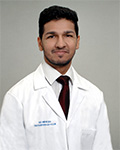
Zaid Ansari, MD
Medical School: Deccan College of Medical Sciences, India
Residency: Creighton University School of Medicine, Phoenix
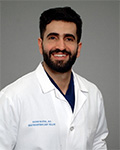
Akram Ahmad, MD
Medical School: Jordan University of Science and Technology
Residency: Medstar Washington Hospital Center
Class of 2027
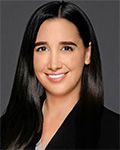
Cristina Fernandez, MD
Medical School: Florida International University
Residency: NYU Langone Health
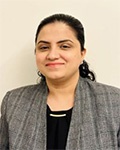
Neelam Khetpal, MD
Medical School: Dow University of Health Sciences
Residency: AdventHealth Orlando
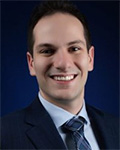
Anas Khouri, MD
Medical School: Aleppo University
Residency: USA Health University of South Alabama
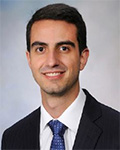
David Restrepo, MD
Medical School: CES University
Residency: University of Connecticut
Class of 2028
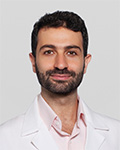
Abdellatif Ismail, MD
Medical School: Hashemite University Faculty of Medicine, Jordan
Residency: University of Maryland Medical Center
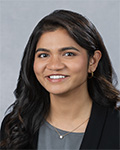
Ritika Mazumder, DO
Medical School: Kansas City University College of Osteopathic Medicine, United States of America
Residency: Cleveland Clinic
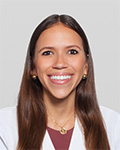
Isabella Suarez-Alcala, MD
Medical School: Universidad Central de Venezuela Escuela de Medicina Luis Razetti, Venezuela
Residency: Palmetto General Hospital
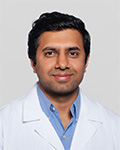
Yousaf Zafar, MD
Medical School: C.M.H. Lahore Medical College and Institute of Dentistry, Pakistan
Residency: University of Missouri - Kansas City
Alumni
The Gastroenterology training program began in 2004 with 2 fellows and gradually expanded to our current complement of six fellows by 2013. We have had the same program director over this time period and all of our graduates have passed their boards in their first attempt. The names, positions and additional training of our graduates are below:
Class of 2007
- Daniel Moore, MD, conducting a private practice in Quincy, Illinois his home state
- Ramu Raju, MD, did advanced endoscopy fellowship at Maine Medical Center and MD Anderson and currently in private practice in Boulder, Colorado
Class of 2009
- Tolga Erim, DO, did advanced endoscopy fellowship at Beth Israel, Boston and subsequently joined our faculty at Cleveland Clinic
Class of 2010
- German Gonzalez, MD, private practice in South Florida
- Matthew Thoma, MD, subspecialty in endoscopic ultrasound, private practice in South Carolina
Class of 2012
- Einar Lurix, MD, private practice in South Carolina
Class of 2013
- Brenda Jimenez, MD, was recruited to join our faculty at Cleveland Clinic where she has a special interest in hereditary colon cancer
- Jorge Zapatier, MD, private practice in Des Moines, Iowa
Class of 2014
- John Rivas, MD, did transplant hepatology fellowship at Cleveland Clinic Ohio and subsequently joined our faculty at Cleveland Clinic Florida
Class of 2015
- Mariann Padron, MD, private practice in Worcester, Massachusetts
Class of 2016
- Brent Murchie, MD, private practice in Sarasota, Florida
- Alicia Alvarez, MD, advanced endoscopy fellowship at Beth Israel, Boston and subsequently joined private practice in South Florida
Class of 2017
- Bahaa Ismail, MD, academic practice at University of Kentucky
- Amar Podugu, MD, private practice in Canton, Ohio
Class of 2018
- Leyla Maric, MD, Cleveland Clinic Florida
- Sandra Rodriguez, private practice in South Florida
Class of 2019
- Nikhil Kapila, MD, Transplant Hepatology Fellowship Duke University
- Jose Melendez, MD, private practice South Florida
Class of 2020
- Vaibhav Wadhwa, MD, UTH Health McGovern Medical School
- Asad ur Rahman, MD, Cleveland Clinic Florida
Class of 2021
- Daniel Castaneda, MD, Annie Penn Hospital, Cone Health
- Badar Hasan, MD
Class of 2022
- Adalberto Gonzalez, MD, Cleveland Clinic Florida
- Kanwarpreet S. Tandon, MD, Advanced IBD Fellowship at Boston University Medical Center
Class of 2023
- Mohammad Almoari, MD, Cleveland Clinic Ohio for an Advanced IBD fellowship. Will join the GI department at the University of Arkansas for Medical Sciences (UAMS) as an Assistant Professor the following year
- Mamoon Rashid, MD, Borland and Groover Gastroenterology group in Jacksonville, FL
Class of 2024
- Jonathan Ragheb, MD, AdventHealth Altamonte Springs in Orlando
- Pravallika Chadalavada, MD, Staff at the University of Missouri
Class of 2025
- Ashraf Almomani, MD, APD, GI Fellowship Program at the University of Missouri
For More Information Contact
Program Manager
Janine Rodrigues, MS, CNS, LDN, CDN, MLIS, Notary
Cleveland Clinic Florida
2950 Cleveland Clinic Boulevard
Weston, Florida 33331
Email: rodrigj17@ccf.org
Research
Publications
- Ahmad AI, Lee A, Nithagon P, Ayaz O, Altork N, Peppas S, et al. Esophageal squamous papilloma: Literature review and case-control retrospective study with histopathological exam of human papillomavirus. JGH Open. 2023 Oct;7(10):674–81.
- Al Ashi SI, Thapa B, Flores M, Ahmed R, Rahim SEG, Amir M, et al. Endocrine Toxicity and Outcomes in Patients With Metastatic Malignancies Treated With Immune Checkpoint Inhibitors. J Endocr Soc. 2021 Aug 1;5(8):bvab100.
- Al-Dwairy A, Azar L, Bakain T, Ahmad A, Woo S, Nithagon P, et al. Viral esophagitis in non-human immunodeficiency virus patients: a case-control study. Transl Gastroenterol Hepatol. 2024;9:19.
- Alomari M, Chadalavada P, Afraz S, AlGhadir-AlKhalaileh M, Suarez ZK, Swartz A, et al. Post-hospitalization Short Versus Long Steroid Taper Strategies in Patients With Acute Severe Ulcerative Colitis: A Comparison of Clinical Outcomes. Crohns Colitis 360. 2024 Apr;6(2):otae025.
- Alomari M, Rashid MU, Chadalavada P, Ragheb J, Zafar H, Suarez ZK, et al. Comparison between metabolic-associated fatty liver disease and nonalcoholic fatty liver disease: From nomenclature to clinical outcomes. World J Hepatol. 2023 Apr 27;15(4):477–96.
- Alomari M, Wadhwa V, Bejarano P, Amar P, Erim T. Successful Treatment of Extensive Esophageal Squamous Papillomatosis With Cryotherapy. ACG Case Rep J. 2019 Mar;6(3):1–4.
- Axelrad JE, Bazarbashi A, Zhou J, Castañeda D, Gujral A, Sperling D, et al. Hormone Therapy for Cancer Is a Risk Factor for Relapse of Inflammatory Bowel Diseases. Clin Gastroenterol Hepatol. 2020 Apr;18(4):872-880.e1.
- Bilal M, Chatila A, Siddiqui MT, Al-Hanayneh M, Shah AR, Desai M, et al. Rising Prevalence of Opioid Use Disorder and Predictors for Opioid Use Disorder Among Hospitalized Patients With Chronic Pancreatitis. Pancreas. 2019 Dec;48(10):1386–92.
- Bilal M, Simons M, Rahman AU, Smith ZL, Umar S, Cohen J, et al. What constitutes urgent endoscopy? A social media snapshot of gastroenterologists’ views during the COVID-19 pandemic. Endosc Int Open. 2020 May;8(5):E693–8.
- Castaneda D, Azar FF, Hussain I, Hasan B, Charles R, Pimentel R, et al. Clinical and Endoscopic Predictors of Hydrostatic Balloon Dilation Failure for Post-Bariatric Anastomotic Stricture Treatment. Obes Surg. 2021 Jul;31(7):2935–41.
- Castillo M, Gonzalez A, Ur Rahman A, Kaur J, Bejarano P, Wadhwa V, et al. Pancreatic Head Mass: A Rare Manifestation of Granulomatosis With Polyangiitis. ACG Case Rep J. 2019 Oct;6(10):e00263.
- Colak Y, Hasan B, Erkalma B, Tandon K, Zervos X, Menzo EL, et al. Pathogenetic mechanisms of nonalcoholic fatty liver disease and inhibition of the inflammasome as a new therapeutic target. Clin Res Hepatol Gastroenterol. 2021 Jul;45(4):101710.
- Emile SH, Ragheb J. Toward less invasive coloproctology: The future is out there. World J Gastroenterol. 2024 Jan 21;30(3):199–203.
- Gonzalez A, Wadhwa V, Salomon F, Kaur J, Castro FJ. Lupus enteritis as the only active manifestation of systemic lupus erythematosus: A case report. World J Clin Cases. 2019 Jun 6;7(11):1315–22.
- Gonzalez A, Wadhwa V, Singh H, Khan S, Gupta K, Liang H, et al. Endoscopic ultrasound with combined fine needle aspiration plus biopsy improves diagnostic yield in solid pancreatic masses. Scand J Gastroenterol. 2022 Jan 6;1–8.
- Gonzalez A, Zervos X, Pinna A, Singh KT, Castaneda D, Reino D, et al. Orthotopic Liver Transplantation in a Cirrhotic Patient With Recent COVID-19 Infection. ACG Case Rep J. 2021 Jul;8(7):e00634.
- Gonzalez AJ, Kapila N, Thomas E, Pinna A, Tzakis A, Zervos XB. Managing liver transplantation during the COVID-19 pandemic: A survey among transplant centers in the Southeast United States. WJH. 2021 Dec 27;13(12):2161–7.
- Haider S, Ramai D, Shah S, Riyat ND, Spadaccini M, Chandan S, et al. Outcomes of ERCP in Patients With Cystic Fibrosis: A Nationwide Inpatient Assessment. J Clin Gastroenterol. 2025 Feb 1;59(2):190–4.
- Hasan B, Colak Y, Khalid RA, Castillo M, Castaneda D, Tandon K, et al. Early Detection of Hepatocellular Carcinoma Recurrence in the Posttransplant Population: A Comparison of RETREAT and Cleveland Clinic Florida Scoring System. Transplant Proc. 2020 Oct 14.
- Hasan B, Colak Y, Rashid MU, Van A, Sarvepalli D, Khalid RA, et al. Risk Factors Associated With Postendoscopic Mucosal Resection Bleeding in Patients With Cirrhosis: A Retrospective Multicenter Cohort Study. J Clin Gastroenterol. 2020 Aug 12.
- Hasan B, Khalid R, Charles R, Shen B. Abdominal Pain in a Patient With Diverted Bowel and Inflammatory Bowel Disease. ACG Case Reports Journal. 2020 Aug;7(8):e00437.
- Hasan BM, McMahon C, Khalid RA, Colak Y, Mayorga DC, Elkafrawy A, et al. Utility and safety of balloon-assisted enteroscopy in patients with left ventricular assist devices: a retrospective multicenter study. Endosc Int Open. 2020 Aug;08(08):E1002–8.
- Hasan B, Yim Y, Ur Rashid M, Khalid RA, Sarvepalli D, Castaneda D, et al. Hyperbaric Oxygen Therapy in Chronic Inflammatory Conditions of the Pouch. Inflamm Bowel Dis. 2020 Sep 18.
- Hirten RP, Ungaro RC, Castaneda D, Lopatin S, Sands BE, Colombel JF, et al. Anastomotic Ulcers After Ileocolic Resection for Crohn’s Disease Are Common and Predict Recurrence. Inflamm Bowel Dis. 2020 Jun 18;26(7):1050–8.
- Hussain I, Rashid MU, Sarvepalli D, Rahman AU, Ullah W, Badar H, et al. Newer Trends in Pancreatic Cancer Treatment: Genetic Alterations and the Role of Immune Therapeutic and Targeted Therapies. Crit Rev Oncog. 2019;24(2):157–77.
- Hussain I, Rashid MU, Sarvepalli D, Rahman A ur, Ullah W, Badar H, et al. Newer Trends in Pancreatic Cancer Treatment: Genetic Alterations and the Role of Immune Therapeutic and Targeted Therapies. CRO [Internet]. 2019 [cited 2021 Jan 11];24(2). Available from: http://www.dl.begellhouse.com/journals/439f422d0783386a,4e35fd64043789bc,27ecdebc702fceb0.html
- Hwalla N, Koleilat M. Dietetic practice: the past, present and future. East Mediterr Health J. 2004 Nov;10(6):716–30.
- Inayat F, Ur Rahman A, Almas T, Zahid E, Zervos X. Nasal Bridles for Securing Nasoenteric Feeding Tubes: A Review of Clinical Effectiveness and Potential Complications. Cureus. 2020 May 28;12(5):e8325.
- Inayat F, Ur Rahman A, Zahid E, Ali NS, Charles R. Symptomatic involvement of the stomach and duodenum as initial presentation of AL amyloidosis. BMJ Case Rep. 2019 Jan 17;12(1).
- Ismail B, Alayoubi MS, Abdelwadoud M, Castro FJ. Rebleeding after hemoclip versus argon plasma coagulation for gastrointestinal angiodysplasias: a retrospective multicenter study. Eur J Gastroenterol Hepatol. 2022 Feb 1;34(2):184–91.
- Ismail B, Charnigo R, Ali SM, Alkhairi B, Benrajab K, Singh H, et al. Impact of octreotide on sodium level in cirrhotic inpatients with hyponatremia: a retrospective study. Eur J Gastroenterol Hepatol. 2023 Dec 1;35(12):1394–401.
- Jaan A, Sarfraz Z, Farooq U, Malik S, Ur Rahman A, Okolo P. Incidence, implications and predictors of abdominal compartment syndrome in acute pancreatitis: A nationwide analysis. Pancreatology. 2024 May;24(3):370–7.
- Kachaamy T, Sharma N, Shah T, Mohapatra S, Pollard K, Zelt C, et al. A prospective multicenter study to evaluate the impact of cryotherapy on dysphagia and quality of life in patients with inoperable esophageal cancer. Endoscopy. 2023 Oct;55(10):889–97.
- Kapila N, Gonzalez A, Rosado JM, Flocco G, Salomon F, Abusaif M, et al. Safety of anti-TNF agents in patients with compensated cirrhosis: a case-control study. Therap Adv Gastroenterol. 2021;14:17562848211037094.
- Kapila N, Menon KVN, Al-Khalloufi K, Vanatta JM, Murgas C, Reino D, et al. Hepatitis C Virus NAT-Positive Solid Organ Allografts Transplanted Into Hepatitis C Virus-Negative Recipients: A Real-World Experience. Hepatology. 2020 Jul;72(1):32–41.
- Khazaaleh S, Alomari M, Sharma S, Kapila N, Zervos XB, Gonzalez AJ. COVID-19 in liver transplant patients: Impact and considerations. World J Transplant. 2023 Jan 18;13(1):1–9.
- Khazaaleh S, Alomari M, Rashid MU, Castaneda D, Castro FJ. Gastric intestinal metaplasia and gastric cancer prevention: Watchful waiting. Cleve Clin J Med. 2024 Jan 2;91(1):33–9.
- Khazaaleh S, Babar S, Alomari M, Imam Z, Chadalavada P, Gonzalez AJ, et al. Outcomes of total pancreatectomy with islet autotransplantation: A systematic review and meta-analysis. World J Transplant. 2023 Jan 18;13(1):10–24.
- Khazaaleh S, Suarez ZK, Alomari M, Rashid MU, Handa A, Gonzalez AJ, et al. Liver transplantation amidst the COVID-19 era: Our center’s experience. World J Clin Cases. 2023 Jan 16;11(2):316–21.
- Mahmoud R, Shah SC, Torres J, Castaneda D, Glass J, Elman J, et al. Association Between Indefinite Dysplasia and Advanced Neoplasia in Patients With Inflammatory Bowel Diseases Undergoing Surveillance. Clin Gastroenterol Hepatol. 2020 Jun;18(7):1518-1527.e3.
- Malik TF, Sabesan V, Mohan BP, Rahman AU, Othman MO, Draganov PV, et al. Efficacy and safety of endoscopic submucosal dissection for colorectal dysplasia in patients with inflammatory bowel disease: a systematic review and meta-analysis. Clin Endosc. 2024 May;57(3):317–28.
- Maric L, Castaneda D, Singh H, Bejarano P, Jimenez Cantisano B, Castro FJ. Kimura-Takemoto Classification: A Tool to Predict Gastric Intestinal Metaplasia Progression to Advanced Gastric Neoplasia. Dig Dis Sci. 2021 Aug 18;
- Melendez-Rosado J, Rodriguez K, Singh H, Kandragunta K, Gonzalez A, Salomon F, et al. Afro-Caribbeans Have a Lower Prevalence of Advanced Colon Neoplasia than African-Americans. Dig Dis Sci. 2020 Aug;65(8):2412–8.
- Peppas S, Doumas S, Suvarnakar A, Chou J, Arafat A, Ahmad AI, et al. Clinical outcomes with metformin use in diabetic patients... : European Journal of Gastroenterology & Hepatology. [cited 2025 July 15]; Available from: https://journals.lww.com/eurojgh/fulltext/2024/05000/clinical_outcomes_with_metformin_use_in_diabetic.23.aspx
- Ragheb J, Mony S, Klapman J, Erim T, Reagan A, Butler R, et al. Impact of margin status on outcomes after endoscopic resection of well-differentiated duodenal neuroendocrine tumors. Gastrointest Endosc. 2021 Sep;94(3):580–8.
- Rahman AU, Zahid E, Khan MT, Naeem A, Ali S, Rashid MU, et al. Familial Pancreatic Cancer: A Critical Review. Crit Rev Oncog. 2019;24(2):149–56.
- Rashid MU, Alomari M, Afraz S, Erim T. EMR and ESD: Indications, techniques and results. Surg Oncol. 2022 Aug;43:101742.
- Razick DI, Akhtar M, Wen J, Alam M, Dean N, Karabala M, et al. The Role of Sirtuin 1 (SIRT1) in Neurodegeneration. Cureus. 2023 June;15(6):e40463.
- Sarvepalli D, Rashid MU, Rahman AU, Ullah W, Hussain I, Hasan B, et al. Gemcitabine: A Review of Chemoresistance in Pancreatic Cancer. Crit Rev Oncog. 2019;24(2):199–212.
- Sarvepalli D, Rashid MU, Rahman AU, Ullah W, Hussain I, Hasan B, et al. Gemcitabine: A Review of Chemoresistance in Pancreatic Cancer. CRO [Internet]. 2019 [cited 2021 Jan 11];24(2). Available from: http://www.dl.begellhouse.com/journals/439f422d0783386a,4e35fd64043789bc,6feab0ed42cd738f.html
- Shah TU. Stomach and duodenum: what’s current in 2023. Curr Opin Gastroenterol. 2023 Nov 1;39(6):479–81.
- Shah T. Which Will Take a Bigger Piece of the Action: EUS or Percutaneous Liver Biopsy? Dig Dis Sci. 2023 Sept;68(9):3492–3.
- Suarez ZK, Castaneda D, Gonzalez A, Castro FJ, Erim T. Endoscopic and Surgical Management of Blue Rubber Bleb Nevus Syndrome. ACG Case Rep J. 2022 Oct;9(10):e00890.
- ur Rahman A, Hussain I, Hasan B, ur Rashid M, Tandon KS, Castro F. Association of Complicated Diverticulitis With Development of De Novo Inflammatory Bowel Disease. Inflammatory Bowel Diseases [Internet]. 2020 Nov 18 [cited 2021 Jan 11];(izaa299). Available from: https://doi.org/10.1093/ibd/izaa299
- Verheyen E, Castaneda D, Gross SA, Popov V. Increased Sessile Serrated Adenoma Detection Rate With Mechanical New Technology Devices: A Systematic Review and Meta-Analysis. J Clin Gastroenterol. 2020 Jul 8;
- Wadhwa V, Gonzalez AJ, Selema K, Feldman R, Lopez R, Vargo JJ. Novel device for monitoring respiratory rate during endoscopy-A thermodynamic sensor. World J Gastrointest Pharmacol Ther. 2019 Jul 18;10(3):57–66.
- Wadhwa V, Gonzalez A, Franco Azar F, X., Singh H, Gupta K, Liang H, Schneider A, Ponsky JL, Erim T, Rodriguez J, Castro FJ. Does a response to botulinum toxin injection predict a future response to peroral pyloric myotomy (POP) in patients with gastroparesis? Endoscopy 2022 published online. Endoscopy. 2022
- Wehrle CJ, Kusakabe J, Akabane M, Maspero M, Zervos B, Modaresi Esfeh J, et al. Expanding Selection Criteria in Deceased Donor Liver Transplantation for Hepatocellular Carcinoma: Long-term Follow-up of a National Registry and 2 Transplant Centers. Transplantation. 2024 Dec 1;108(12):2386–95.
- Wehrle CJ, Raj R, Maspero M, Satish S, Eghtesad B, Pita A, et al. Risk assessment in liver transplantation for hepatocellular carcinoma: long-term follow-up of a two-centre experience. Int J Surg. 2024 May 1;110(5):2818–31.
- Wierzbicka A, Ukleja A. Managing Intestinal Failure - Success of a 12-STEPS Program. Dig Dis Sci. 2024 May;69(5):1532–3.
- Zafar H, Jimenez B, Schneider A. Small intestinal bacterial overgrowth: current update. Curr Opin Gastroenterol. 2023 Nov 1;39(6):522–8.
